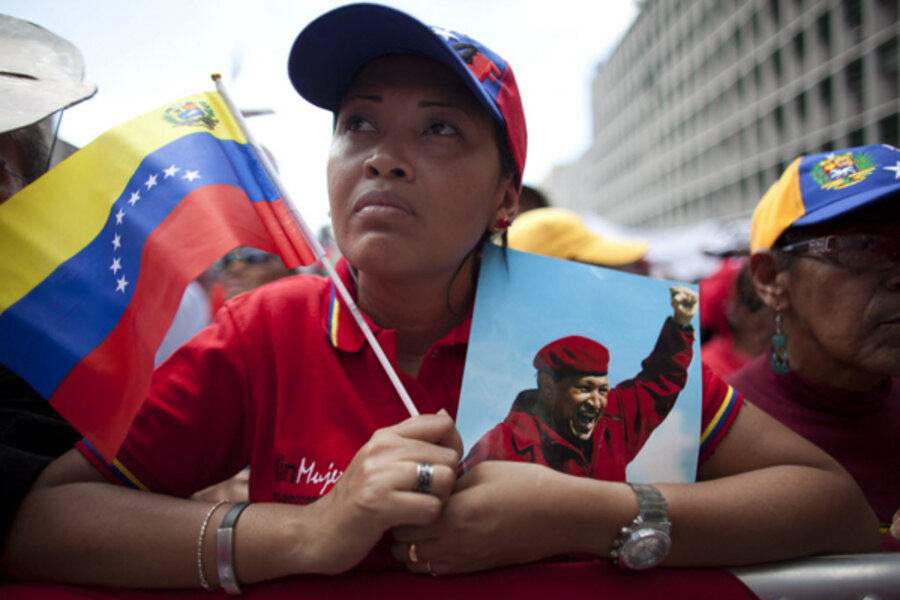Hugo Chavez near death? Many Venezuelans believe in leader's recovery
Loading...
| CARACAS, Venezuela
Venezuela's vice president said Thursday that Hugo Chavez is still fighting for his life, yet a recent poll says nearly three in five Venezuelans believe their president will return to power.
Nicolas Maduro, Chavez's self-appointed successor, said on television that his boss "is battling there for his health, for his life, and we're accompanying him."
The vice president had characterized Chavez's condition similarly on Dec. 20, saying the president "is fighting a great battle ... for his life, for his health."
Chavez hasn't spoken or been seen since before his fourth operation in Cuba on Dec. 11.
Despite speculation by doctors not involved in Chavez's treatment that it is most likely palliative, designed only to make him more comfortable in his remaining days, many Venezuelans apparently believe — or want to believe — he is on the mend.
"The president's prolonged absence and his critical situation have not been converted into massive pessimism about his return," respected pollster Luis Vicente Leon tweeted Thursday.
He said nearly 58 percent of Venezuelans believe Chavez will recover while about 30 percent believe he will not return to power and 12.5 percent say they don't know what will happen. One percent, meanwhile, believeChavez was never sick.
Leon, chief of the Datanalisis polling firm, told The Associated Press that the Feb. 11 poll of 1,198 people had an error margin of three percentage points.
He said he thought the poll reflected people's desire not to believe the worst about someone who is dear to them, just as people resist accepting that a close relative might be dying.
Leon also said he thought reports of government officials holding hours-long meetings with Chavez had contributed to the belief of many Venezuelans that Chavez will return.
"The government has sent permanent messages that President Chavez will return, that he meets with the vice president for five hours," Leon noted.
He said people don't necessarily believe that, however, as the poll found 44 percent think the government has not been transparent in discussing the Chavez's health.
In his televised remarks, Maduro called for Venezuelans to keep praying for Chavez and remain loyal to the committed socialist who has been their president for more than 14 years.
"Do you know why Comandante Chavez neglected his health and has been battling for nearly two years?" he said. "Because he completely surrendered body and soul and forgot all his obligations to himself in order to give himself to the homeland."
Chavez, 58, himself has previously acknowledged that he was neglecting his health in recent years, often staying up late and consuming cup after cup of coffee to remain alert.
On Feb. 15, the government released four photographs of Chavez lying in a bed in Cuba with his two daughters by his side. They were the only images of him published since early December.
Re-elected in October, Chavez was scheduled to have been sworn in on Jan. 10. But the Supreme Court said the swearing-in could be delayed.







